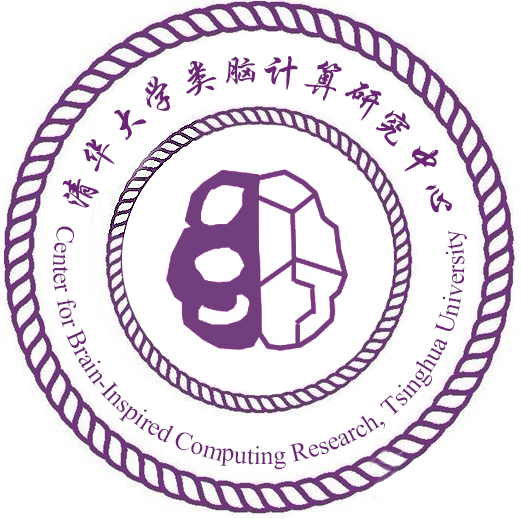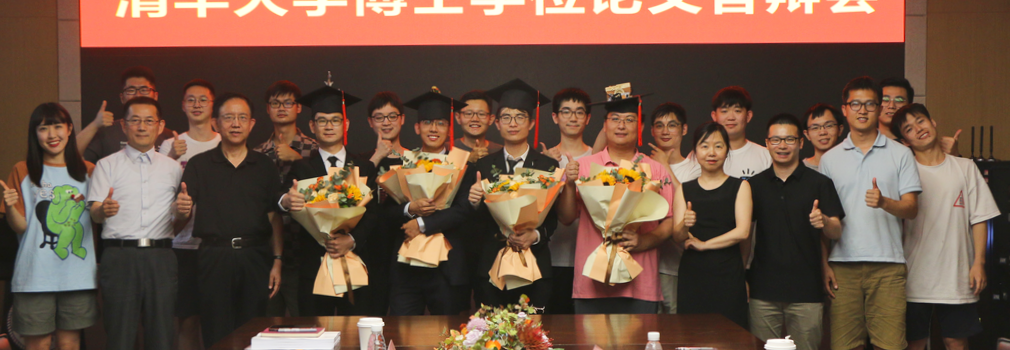Defense Overview
Recently, there has been good news from Tsinghua University’s Center for Brain Inspired Computing Research. The center’s faculty and students have witnessed the birth of four new doctors: Yang Yifei, Zhang Weihao, Liu Faqiang, and Xu Mingkun.

▲ (1) Yang Yifei, (2) Zhang Weihao, (3) Liu Faqiang, and (4) Xu Mingkun (Names in order of the images)
Their doctoral dissertation defenses were held individually in the main conference room of the Department of Precision Instruments at Tsinghua University. The defense committee members included Professor Cai Yimao from Peking University, Professor Cao Lihong from the Communication University of China, Professor Yuan Dongfeng from Shandong University, Associate Professor Liang Shijun from Nanjing University, as well as Professor Dong Yonggui, Professor Chen Feng, Professor Zhao Rong, Professor Shi Luping, Associate Professor Gao Bin, Associate Professor Li Huanglong, and Associate Researcher Pei Jing from Tsinghua University. The defense also attracted numerous professors and students from outside and within the university as observers.
Xu Mingkun is supervised by Associate Researcher Pei Jing, Yang Yifei is supervised by Associate Professor Li Huanglong, and Zhang Weihao and Liu Faqiang are both supervised by Professor Shi Luping.
Let’s witness the splendid defense performance and outstanding achievements of these four students!
Research Topics & Achievements
Yang Yifei’s doctoral dissertation defense topic is “Research on Integrated Neuro-Morphic Devices and Reconfigurable Logic Devices.” Yang Yifei conducted research on three types of neuro-morphic devices: synapses, neurons, and dendrites, as well as reconfigurable logic devices. His innovative achievements include:
- Developing electronic synapse devices and selector devices based on Te materials by exploring the competitive relationship between the Joule heating effect and the electrochemical effect of Te materials. These devices effectively address the contradiction between current and retention time. Additionally, a single-device oscillating neuron based on Te materials was developed.
- Creating dendritic devices with non-monotonic action potentials by utilizing the heterojunction channel’s anti-bipolar transfer characteristic curves. This achievement simulates the active computing function of biological dendrites at the device level.
- Designing polar reconfigurable logic devices using the electrochemical properties and p-type semiconductor properties of Te materials. This achievement enables non-volatile channel polarity transition, providing new ideas for the research of reconfigurable devices and brain-inspired computing systems.
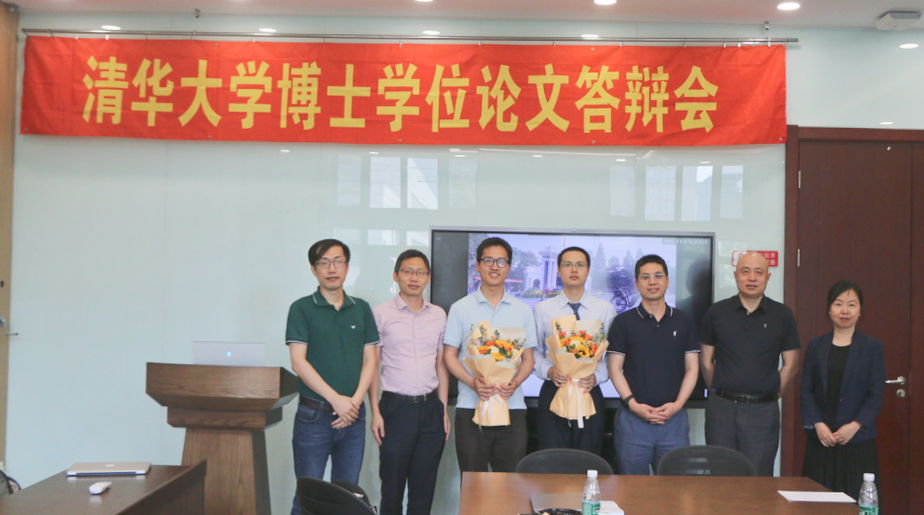
▲ A group photo of the defense committee with Yang Yifei
Zhang Weihao’s doctoral dissertation defense topic is “Research on Theory and System Software for Brain-Inspired Multi-Core Architecture Deployment.” During his doctoral period, Zhang Weihao conducted systematic research on the system software of multi-core brain-inspired chip systems, including the compilation stack and simulation stack, as well as key theories for general brain-inspired computing. His innovative achievements include:
- Proposing a specialized three-layer brain-inspired software abstraction model for the neural network field, establishing the basic framework for brain-inspired multi-core architecture deployment. This model effectively alleviates the deployment challenges caused by the diversity of brain-inspired algorithms and the complexity of brain-inspired hardware.
- Introducing a real-time evaluation technique for brain-inspired compilation and performance-level simulation, actualizing a fast mapping search framework for brain-inspired multi-core scheduling based on the mapping interaction language, and establishing an exploration process for brain-inspired multi-core mapping standardization.
- Proposing a theoretical model for the stack of general brain-inspired computing systems, including brain-inspired 𝜖-completeness for guiding system decoupling and approximate compilation techniques, formal brain-inspired execution paradigms, brain-inspired automata for execution complexity, and brain-inspired data flow intermediate representation that efficiently supports control flow.
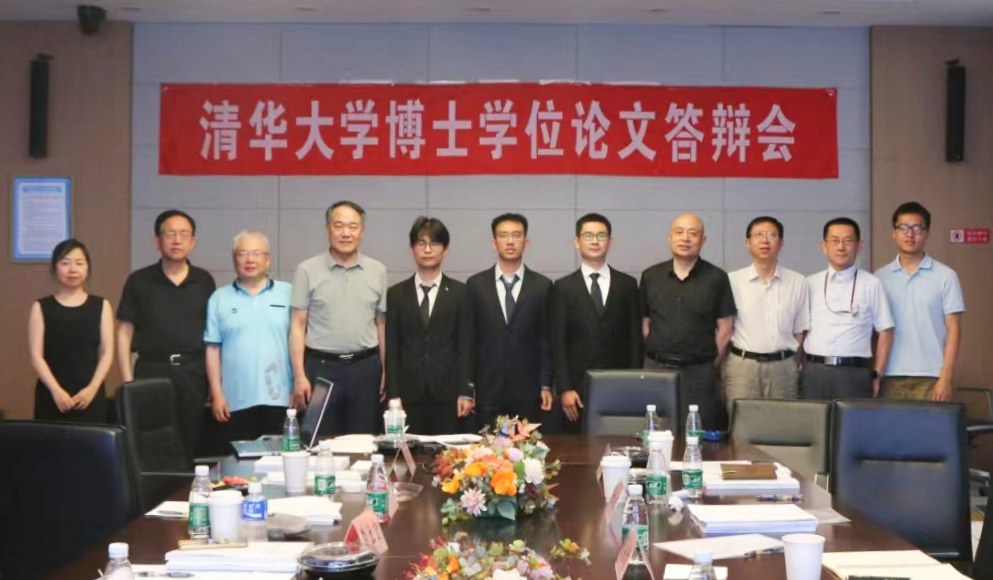
▲ A group photo of the defense committee with Zhang Weihao, Liu Faqiang, and Xu Mingkun.
Liu Faqiang’s doctoral dissertation defense topic is “Research on Key Technologies of Hybrid Multi-Network Brain Models.” During his doctoral period, Liu Faqiang conducted research on the framework and instances of multi-network models as well as exploring brain-inspired solutions to issues such as adversarial robustness and catastrophic forgetting in deep learning. His innovative achievements include:
- In the area of multi-network model framework, proposing an overall architecture and hybrid interface unit for multi-network models to address the design challenges. Introducing an efficient temporal encoding scheme based on temporal correlation constraints to alleviate the underutilization problem of time dimension in pulse coding.
- In the domain of homogeneous multi-network models, proposing a two-stage training approach and network selection principles for robust feature stacking networks, effectively balancing robustness and accuracy. Introducing the adversarial symmetric training algorithm to enhance the overall training stability of the model.
- In the field of heterogeneous multi-network models, proposing a weakly supervised objective function optimization feedback attention generation mechanism to enhance the adversarial robustness of pulse networks. Introducing a dynamic resource allocation strategy based on task similarity to mitigate pulse network forgetting issues.
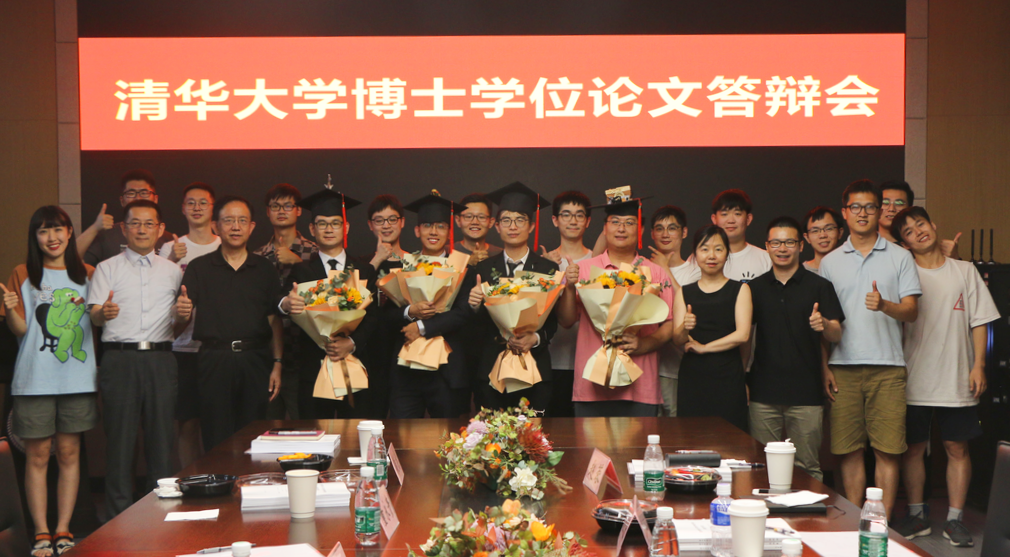
▲ A group photo of the faculty and students from the Center for Brain-Inspired Computing Research.
Xu Mingkun’s doctoral dissertation defense topic is “Research on Key Technologies of Spiking Neural Networks for Graph Representation Learning.” During his doctoral period, Xu Mingkun conducted systematic research on spiking neural networks for graph representation learning, focusing on three aspects: unstructured information, structured graph information, and hardware co-verification. His innovative achievements include:
- Addressing the inefficiency in representing and learning unstructured information, proposing a brain-inspired prior fusion scheme at the levels of neuron model, multi-scale learning, and synaptic homeostasis mechanism. This scheme enhances the interpretability and learning ability of spiking neural networks.
- Dealing with the challenge of spiking mechanisms in handling graph tasks, constructing a general graph learning modeling framework based on neural dynamics. The use of spatiotemporal normalization techniques achieves more stable internal representations, resolving the convergence and generalization issues of spiking models in graph learning tasks.
- Tackling the lack of efficient deployment solutions for the constructed models on neural-morphic hardware, proposing a spatiotemporal mixed-granularity mapping strategy and a mixed-meta learning on-chip learning scheme for spiking graph models. These solutions are capable of addressing the deployment challenges of new spiking computing models.
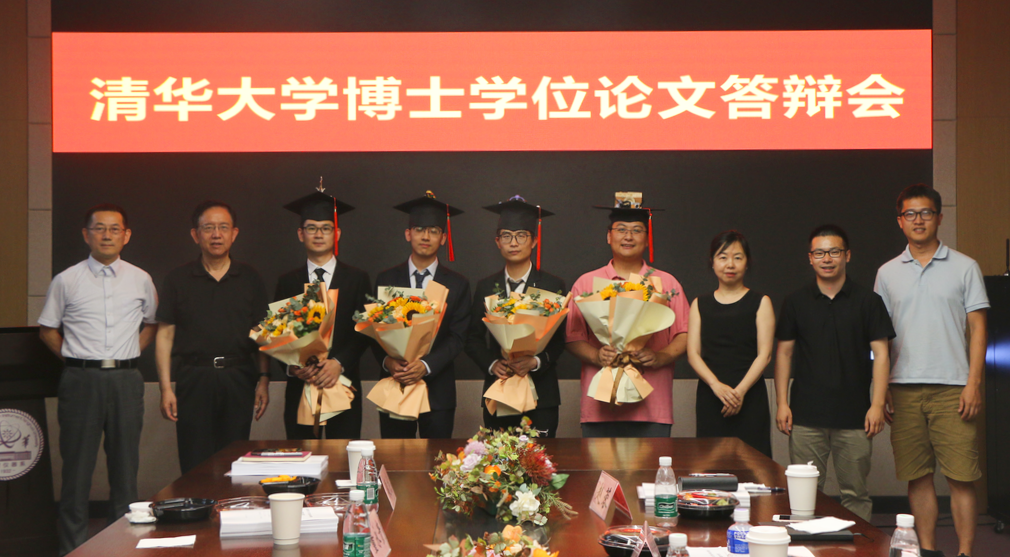
▲ Defense Session Group Photo.
Self Introduction
Student Yang Yifei has published four papers as the first author in international academic journals such as Nature Communications and Advanced Electronic Materials. Additionally, he has applied for four national invention patents. While conducting research work, Yang Yifei actively participates in student social activities. He has served as the Secretary of the Research Team Committee in the Department of Precision Instruments at Tsinghua University, and has also held the position of Assistant to the County Mayor in Xinxiang County, Henan Province. After graduation, Yang Yifei chose to work at Tsinghua University and is currently employed at the Research Institute of Tsinghua University.

▲ Dr. Yang Yifei
Student Zhang Weihao has published three papers as the first author and co-first author in international academic journals such as Nature and Science Robotics, as well as in the international conference ICONS. Additionally, he has applied for 39 national invention patents, out of which 5 have already been granted. After graduating with a Ph.D., Dr. Zhang Weihao will be working at Beijing Lingxi Technology, engaging in research and application-related work on brain-like compilation and brain-like multi-core system architecture.
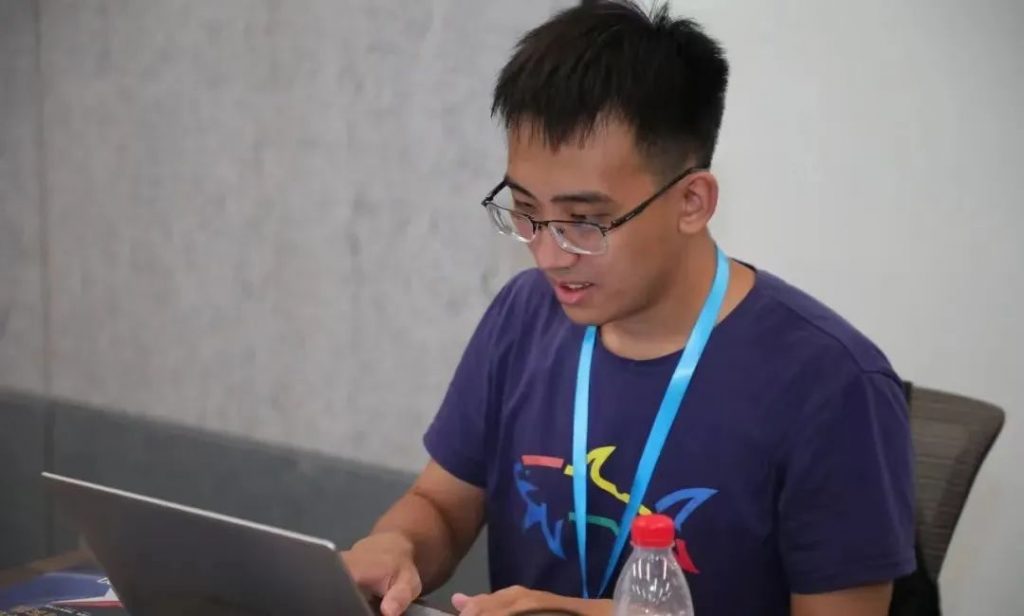
▲ Dr. Zhang Weihao
Student Liu Faqiang has published four papers as the first author and co-first author in international academic journals and conferences such as Nature Communications and Neural Networks. He has also applied for one national invention patent and received the Best Paper Award at The International Conference on Artificial Neural Networks (ICANN 2022). After graduating with a Ph.D., Dr. Liu Faqiang will be working at Beijing Lingxi Technology, engaging in research and application-related work on brain-inspired models and algorithms.
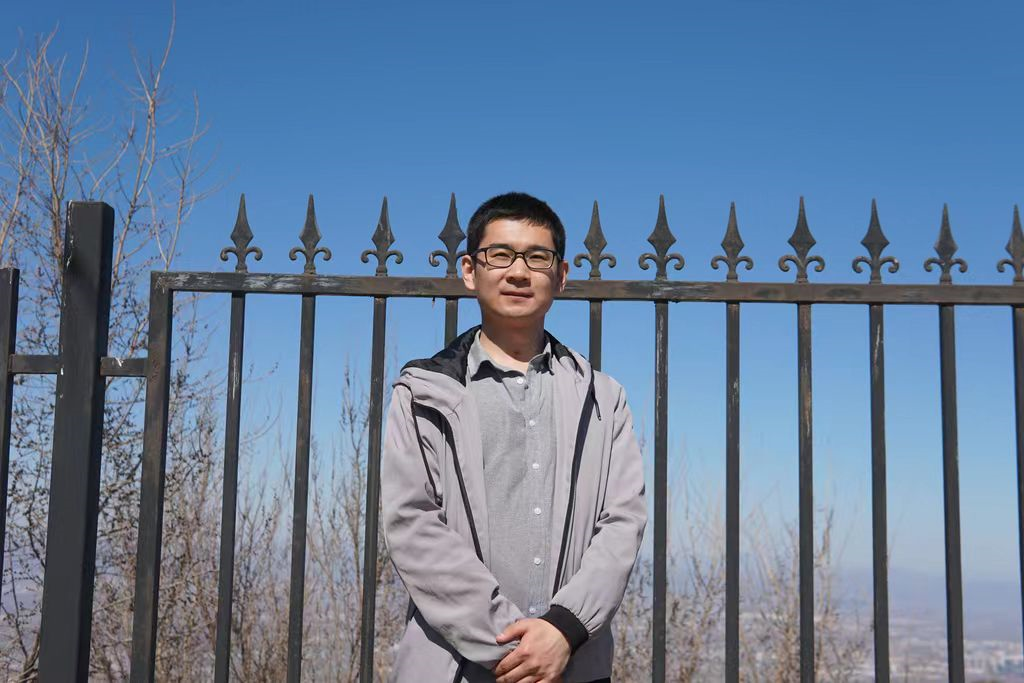
▲ Dr. Liu Faqiang
Student Xu Mingkun has published eight papers as the first author and co-first author in international academic journals such as Nature Communications, ACS Applied Materials & Interfaces, Neural Networks, and at international conferences such as IJCAI. He has also applied for three national invention patents. Xu Mingkun has served as a teaching assistant for the comprehensive practice course in measurement and control instruments for three consecutive years. After graduation, Xu Mingkun will join the Guangdong Provincial Institute of Intelligent Science and Technology in Hengqin as a postdoctoral researcher, continuing their research in brain-inspired computing.

▲ Dr. Xu Mingkun
Finally, after the defense committee conducted an anonymous voting, they unanimously agreed that Yang Yifei, Zhang Weihao, Liu Faqiang, and Xu Mingkun passed the doctoral dissertation defense and recommended them for the Doctor of Engineering degree. With this, we wholeheartedly congratulate Yang Yifei, Zhang Weihao, Liu Faqiang, and Xu Mingkun on their future endeavors and wish them continued progress and further success in their professional and personal lives!
